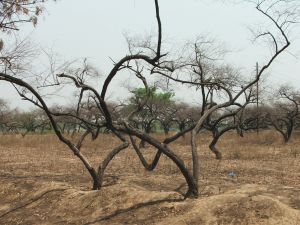Dr Alessandro Pelizzon, of the School of Law and Justice’s Earth Laws Network, was joined by Cormac Cullinan, author, practising environmental solicitor and environmental governance expert from South Africa, in a session last week.
The pair are leaders in the field of Earth Jurisprudence or Wild Law, a new legal theory that, among other things, advocates the recognition of rights to nature. This area of law originated back in 1972, when Professor Christopher Stone advanced the idea that natural, non-human entities such as trees, rivers, lakes and animals could be granted legal standing or, in other words, rights similar to those of humans and legal constructs such as corporations.
"Professor Stone suggested that conferring rights on nature may help to protect the environment from relatively unchecked human exploitation," Dr Pelizzon said.
"His theory was innovative in that it defined injury not merely in human terms but also in regards to nature. This new biocentric or ecocentric perspective thus challenged the anthropocentric views of traditional jurisprudence, which sees humans as the only entities worthy of legal protection.
"Stone’s biocentric perspective, instead, views humans as parts of a more complex system in need of legal protection just as strongly as its individual human elements."
Professor Stone’s theories were further developed by ecotheologian Thomas Berry, who proposed a new framework for law termed 'Earth Jurisprudence'. This philosophy is predicated upon the idea that since humans are part of an interrelated and interdependent community of beings and phenomena, the continuous wellbeing of each member of this community is connected to and dependent on the wellbeing of the community as a whole.
In short, it proposed our legal system needs to be earth-centred rather than human-centred by recognising non-human entities as holders of intrinsic and inalienable rights.
Cullinan’s book, Wild Law, has built on the theories of Berry and Stone to the extent that some communities have now granted and enacted legal rights to nature. These include Tamaqua Borough, in Pennsylvania, that granted ecosystems legal rights in 2006, enabling residents to file a lawsuit on its behalf.
Ecuador followed shortly after including nature as a subject of rights in its Constitution in 2008, and in 2011 a court action in defence of the Vilcabamba River was successful against the Municipality of Loja who intended to build a road to the detriment of the river. Bolivia has also enacted similar legislation in 2010, while New Zealand has recently signed a preliminary agreement to give the Whanganui River a legal voice.
"Australia is increasingly becoming a strong advocate of the principles proposed by Earth Jurisprudence and the rights of nature discourse," Dr Pelizzon said.

